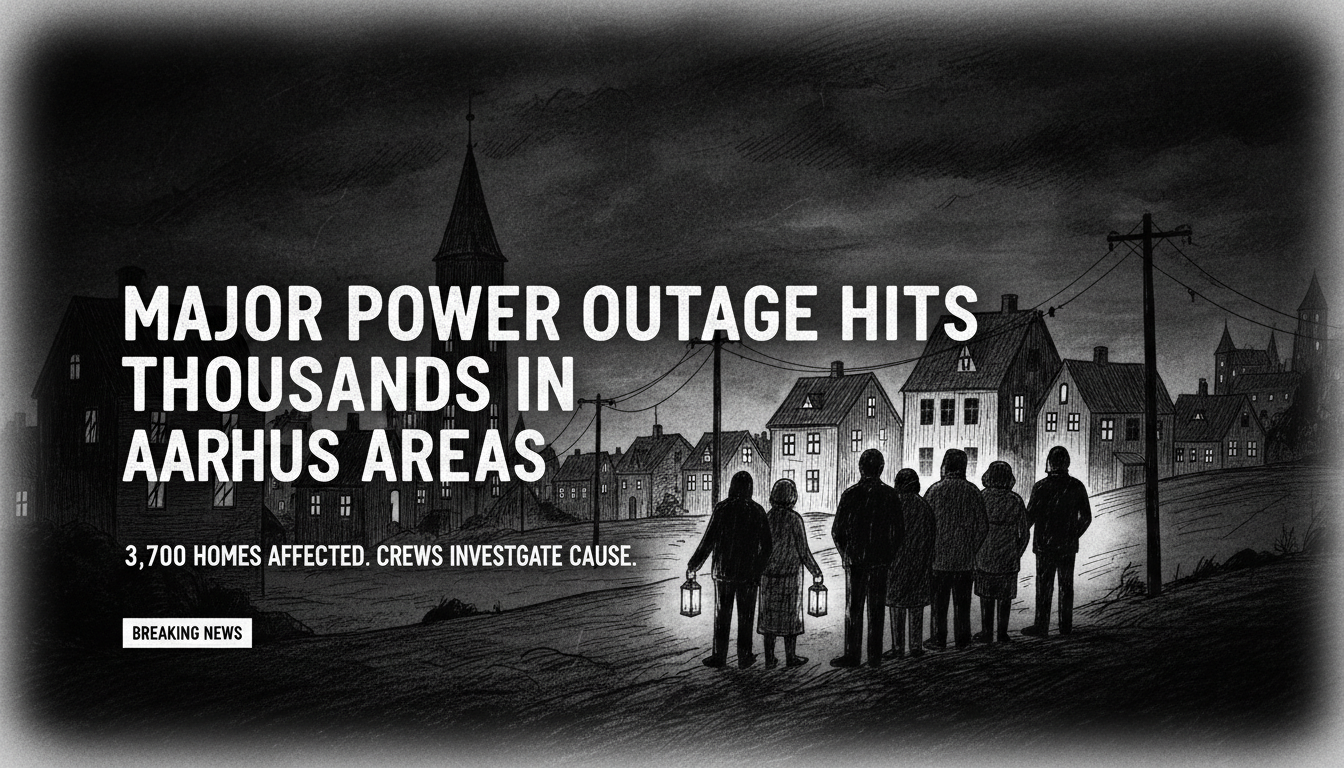Thousands of residents across multiple Aarhus suburbs lost electricity in a widespread power outage. The disruption affected neighborhoods including Hinnerup, Aarhus North, Trige, Tilst and Risskov. Approximately 3,700 customers experienced service interruptions during the incident.
Power companies responded immediately to the outage reports. Crews worked to identify the cause of the disruption and restore service as quickly as possible. The scale of the outage suggests a significant infrastructure issue rather than localized problems.
Denmark's power grid is typically highly reliable, making this event particularly notable. The country has invested heavily in modernizing its energy infrastructure in recent decades. This makes widespread outages relatively rare compared to many other European nations.
For international readers, it's important to understand Denmark's energy context. The country leads in renewable energy adoption, particularly wind power. This commitment to green energy sometimes creates grid management challenges during unexpected weather events or technical failures.
What does this mean for affected residents? Modern Danish households rely heavily on electricity for heating, cooking and digital connectivity. Even brief outages can disrupt work-from-home arrangements, online education and daily routines. Elderly residents and those with medical equipment requiring power face particular challenges.
Local authorities typically activate emergency protocols during such events. They prioritize vulnerable populations and coordinate with utility companies. The response time and communication during outages are key measures of municipal preparedness.
Could climate change be a factor? Denmark has experienced more extreme weather patterns in recent years. While not confirmed in this specific case, weather-related incidents have increasingly affected power infrastructure across Scandinavia. This raises questions about future grid resilience.
The economic impact of such outages extends beyond household inconvenience. Local businesses lose revenue, food spoilage occurs in restaurants and supermarkets, and productivity drops across affected areas. These cumulative effects highlight why reliable power remains crucial for modern communities.
Looking forward, utility companies will need to conduct thorough investigations. They must determine whether this was an isolated incident or indicative of broader infrastructure vulnerabilities. The findings will likely influence future investment decisions in grid maintenance and upgrades.

